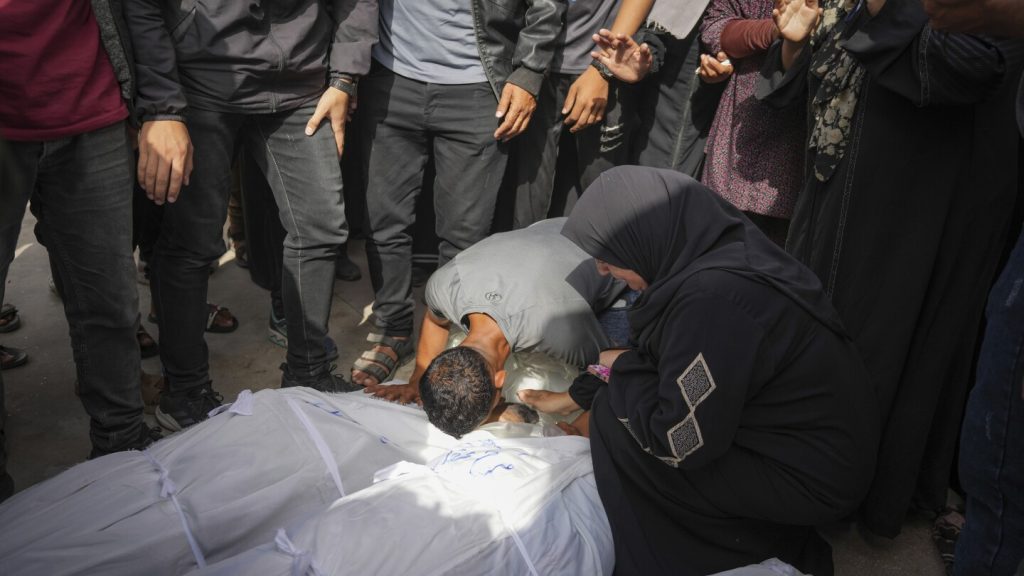An Israeli airstrike in central Gaza killed 27 people, mostly women and children, on Sunday, as fighting with Hamas continued in the north. Prime Minister Benjamin Netanyahu is facing criticism from his War Cabinet, with main political rival Benny Gantz threatening to leave the government if a plan for postwar Gaza governance is not created. U.S. National Security Adviser Jake Sullivan was meeting with Israeli leaders to discuss a plan for Saudi Arabia to recognize Israel and help the Palestinian Authority govern Gaza in exchange for a path to statehood. Netanyahu, however, opposes Palestinian statehood and rejects these proposals, advocating for open-ended security control over Gaza.
Gantz’s ultimatum expressed support for normalizing ties with Saudi Arabia and other Arab countries but also stated opposition to any outside power imposing a Palestinian state on Israel. Gantz’s withdrawal from the government would not bring down Netanyahu’s coalition but would leave him more reliant on far-right allies with extreme views on Palestinian issues. The war in Gaza continues to escalate, with recent airstrikes and heavy fighting in northern Gaza, where a famine is reported to be underway. The Civil Defense reported numerous civilian casualties, including women and children, due to the strikes in several locations across Gaza.
Israel launched its offensive following a deadly attack by Hamas militants in southern Israel, resulting in the deaths of around 1,200 people, mostly civilians, and the abduction of hostages. The war has taken a toll on the Palestinian population, with thousands displaced and living in dire conditions without basic facilities. Netanyahu’s critics and protesters accuse him of prolonging the war for political reasons. Polls suggest that Gantz could succeed Netanyahu if early elections are held, putting pressure on Netanyahu to continue the offensive until Hamas is dismantled and hostages are released.
Netanyahu also faces pressure from the United States, Israel’s closest ally, over its conduct in the war and the humanitarian crisis in Gaza. The U.S. recently held up a shipment of bombs to Israel and expressed concerns about a full-scale invasion of Rafah, a city in southern Gaza. However, after Israel launched a limited operation in Rafah, the U.S. decided to move forward with the sale of $1 billion worth of arms to Israel. The Palestinian Crossings Authority reported that humanitarian aid has not been able to enter Gaza through the vital Rafah border crossing with Egypt since the military operation began almost two weeks ago.
The situation in Gaza remains dire, with ongoing airstrikes, heavy fighting, and a mounting death toll among civilians. The political division within the Israeli government over the future governance of Gaza adds another layer of complexity to the conflict. As the international community continues to monitor the situation and push for a peaceful resolution, the suffering of the Palestinian population, particularly women and children, continues to be a grave concern. Netanyahu’s leadership and decisions in the coming days will play a crucial role in determining the outcome of the conflict and the future of Gaza.


